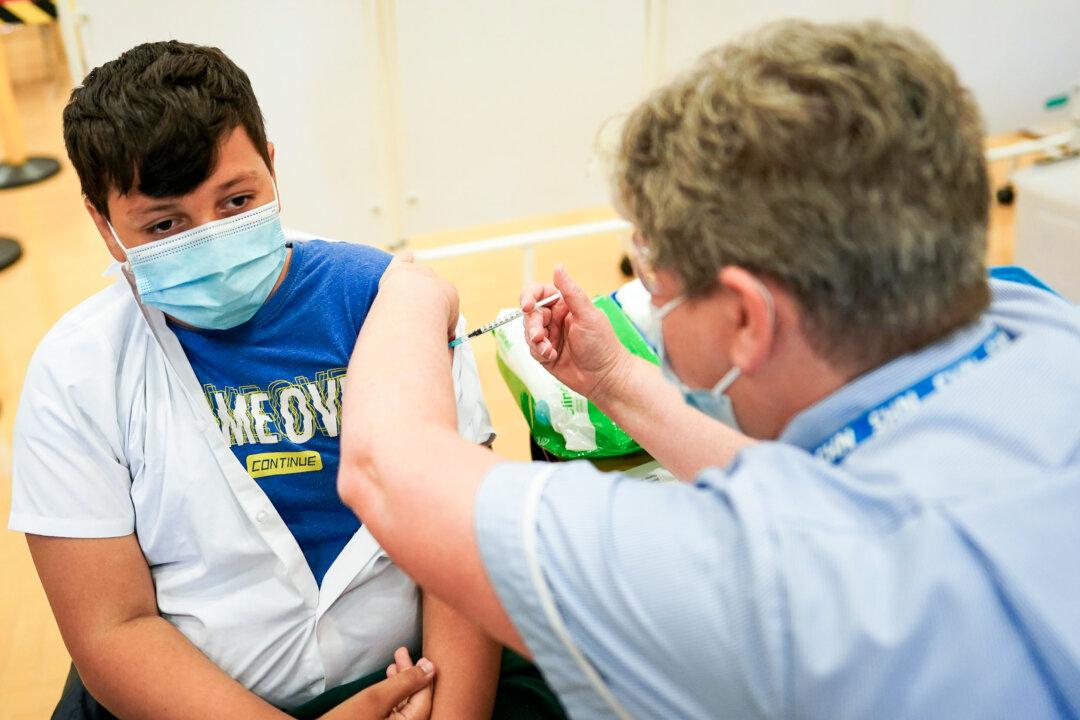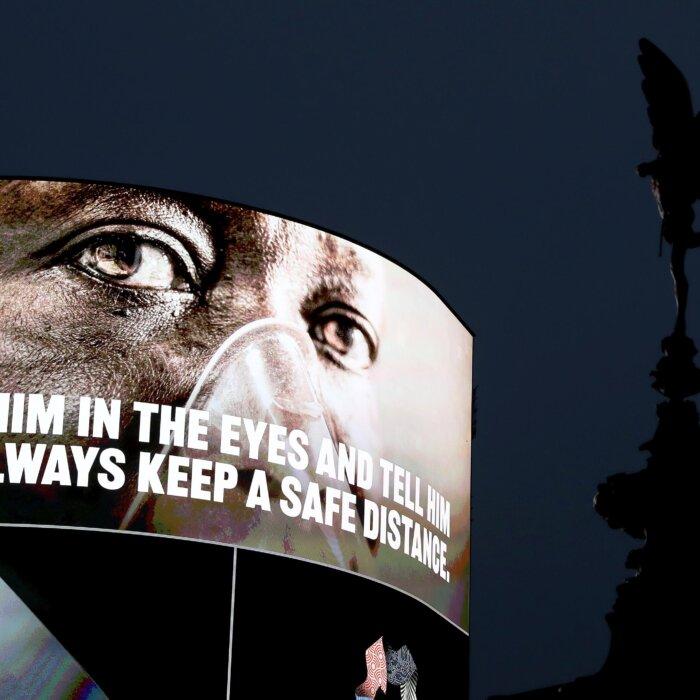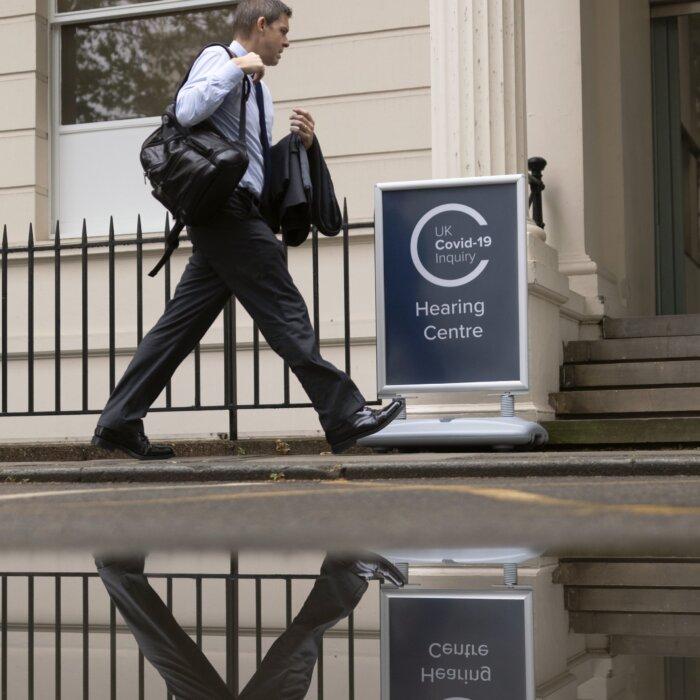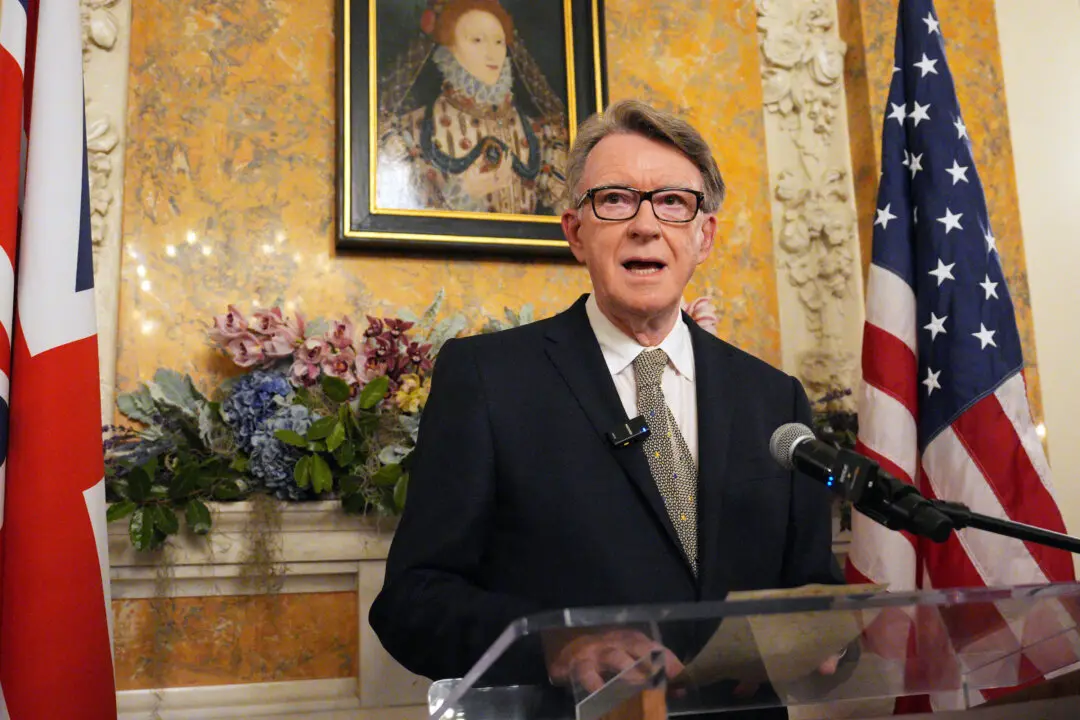A “People’s Vaccine Inquiry” has been launched by a group of doctors and other professionals after the official COVID-19 Inquiry postponed a module examining the jab rollout until January 2025.
The forum includes pathologist Dr. Clare Craig and Dr. Jonathan Engler, who co-chair the Health Advisory and Recovery Team (HART), together with behavioural scientist and author Patrick Fagan and retired civil servant and Perseus Group spokesman Nick Hunt.
‘An Attempt to Hide Evidence’
The group said on its website: “There has been a huge failure in public health over the past few years, which continues on.“There appears to be an attempt to hide evidence from the public and we hope this website is a useful resource for the public and healthcare professionals to stay informed of the latest evidence surrounding the COVID vaccines and their rollout.”
Dr. Evans said in her video statement that health care has changed a great deal since she was at medical school.
“This didn’t come about over night. The stage has been set over the last 30 to 40 years. When I was training, evidence-based medicine was coming in, in the late 1980s, early ‘90s, and it was initially a really noble endeavour to make sure that medical practice was based on evidence.”
‘Medicine Hijacked By Big Pharma’
Dr. Evans added, “Now we have vested interests influencing those protocols and it feels like what’s happened is that evidence based medicine has been hijacked by big pharma.”Dr. Engler is a qualified barrister as well as a medic, and a member of the international group of scientists known as PANDA. He has previously worked within the pharmaceutical industry designing medical trials.
In his statement, he said the clinical trials for the COVID-19 vaccines were “deeply flawed in many ways.”
He said the Pfizer trial was not “double blind,” as is often falsely claimed.
“Site staff knew whether subjects were on the active or placebo drug, giving the potential to treat subjects differently. This leads to bias in the results, especially in relation to the decision as to whether to send the patient for a PCR test, which was how they were measuring COVID ‘cases,'” Dr. Engler said.
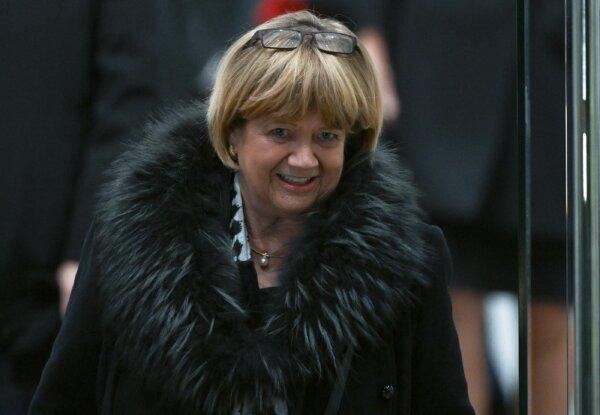
Dr. Craig said in her statement that there is substantial evidence showing “that the more doses people had, the more likely they were to get COVID,” owing to an “antibody switch” occurring in the vaccinated so that their bodies do not fight off the virus as they should.
She said the claim made repeatedly by governments that up to 20 million lives around the world have been saved by the vaccines is “a lie that is based on fantasy modelling, much like the modelling that took us into lockdown in the first place.”
The group is urging for the evidence on their website to be shared far and wide, including for people to show it to their GPs and others in the medical profession.
Doctors Must Be Able to Speak Freely
Mr. Goddard said in a statement that doctors need to be able to speak freely about concerns they have over vaccines without fear of their careers being impacted.He said that at a meeting of the Bristol Medico-Chirurgical Society, a representative of the General Medical Council (GMC) was asked why the GMC allegedly curtails free speech between doctors and patients.
“He denied this was the case but then added that, ‘Of course you can’t just allow doctors to say what they want over things like vaccines.’ There was a howl of protest from the doctors, and he tried to backpedal on his statement but it was too late.
“The GMC viewpoint was clear … despite treating no patients and having no knowledge about COVID vaccinations, the ex-civil servants of the GMC would not permit worried doctors to speak out about their concerns.”
He added that there had been a “distinct lack of activity by the authorities” which ought to be looking seriously into vaccine safety.
“When suspicion of vaccine harm is raised, it is more than likely that the doctor raising the alarm will be disciplined for speaking out of turn.
Concerns About the Official Inquiry
Those injured or bereaved by the jab have raised concerns that the official inquiry might be more concerned with looking at the availability of the vaccine and the speed of the rollout than with problems caused by it.A spokesman on behalf of the COVID-19 Inquiry, which was initially split into six segments, has previously denied all suggestion that it has a predetermined outcome.
The first module explored pandemic preparedness, while the second looked at core decision-making and political governance.
Module five will focus on the procurement and distribution of health care equipment and supplies, while the final module will examine the impact on the adult social care sector.
Two further modules have been announced, looking at the impact on children and at the testing regime, and others could be created, leading to fears this could become the most expensive public inquiry in UK history and may take years to conclude.
When it was announced the vaccines module would be postponed, Baroness Hallett said she recognised this would be “disappointing.”
The reason given for the postponement was “to help ensure the Inquiry receives timely disclosure of evidence for Module Three ahead of its hearings in autumn this year.”
“Thematic issues relating to unequal vaccine uptake will be examined, to include the identification of groups which were the subject of unequal uptake, potential causes of such unequal uptake and the Government response.”
Module Four is also set to “address issues of recent public concern relating to vaccine safety and the current system for financial redress under the UK Vaccine Damage Payment Scheme.”
